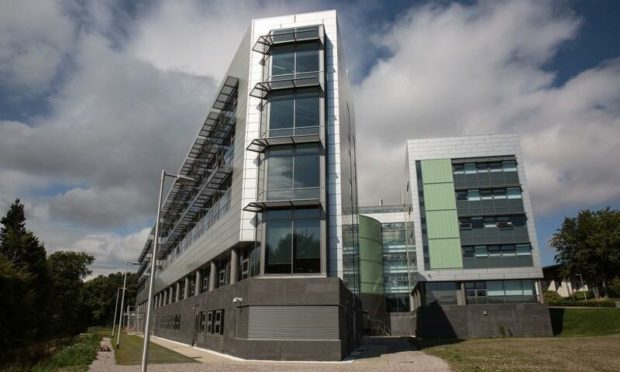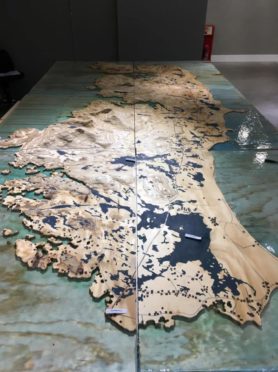A group of architecture students from the Robert Gordon University in Aberdeen are working to map out a more sustainable future for the residents of South Uist.
The students from the Scott Sutherland School of Architecture & Built Environment are working with the Outer Hebridean community to explore the challenges of island life and developing a project based on the themes of Place, Craft and Community.
They are pitching design ideas based on their research which include propositions for sustainable social housing and tourist facilities.
The project aligns with the ambitions of the Island Growth deal which includes £100million of funding to “boost jobs, infrastructure, transport and tourism” across Shetland, Orkney and the Western Isles.
Professor Karen Anderson is leading the project and hopes it will add “real value” to the lives of the islanders.
She said: “The Outer Hebrides has ambitions to develop community sustainability and we are working with islanders to help them achieve this.
“One of the main findings of our study so far, has been the high level of self-sufficiency amongst islanders and their ability to endure a challenging landscape despite the increasing challenges of climate change, depopulation and access to services.
“Our overall ambition is to produce high quality architectural designs that will add real value to island life. We want to embrace craft in the community’s development and build up resilence, creativity and culture.
“Key proposals that we are suggesting include a marine research and agricultural laboratory, new social housing models, community and tourism-orientated facilities, and an insect farm.”
Collaborative projects
The first phase of the project will continue into next year with hopes to exhibit the work on the island and in Aberdeen once it is completed.
The head of the architecture school, Professor David Mclean, said that creating sustainable living supports the school’s social ethos “to work with communities to deliver tangible projects that support the very fabric of social life”.
He added: “RGU already has strong connections with islanders in the Orkney Isles through a range of collaborative projects and we hope to engage with the Western Isles in similar ways.
“In certain respects, island contexts such as this reflect wider global phenomena and challenges in microcosm, thus allowing macro issues to be explored through a very particular set of conditions.”
The team of students have worked in collaboration with Comhairle nan Eilean Siar, as well as community groups, NatureScot and Highlands & Islands Enterprise.
Councillor Iain Archie Macneil said it had been “interesting” seeing the project develop.
He continued: “The students have come up with a wide range of proposals and have been very creative in their designs, whilst demonstrating a good awareness of the landscape and culture of South Uist.
“I am particularly pleased to see that a number of students have focused on social housing projects, as housing is a key priority for the area.
“I look forward to seeing how these projects take shape in the coming year, and hope that in the future there might be opportunities for these innovative housing ideas to help shape the work of the Uist and Barra Housing Group.”

